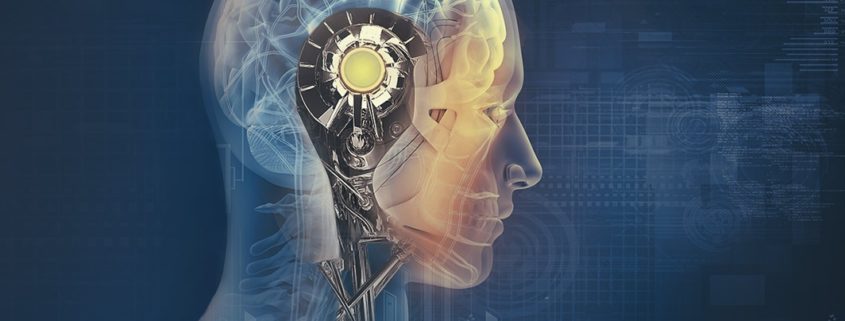How to Take Advantage of the The 4th Industrial Revolution
The 4th Industrial Revolution
The technical advancements of the last 3 or 4 decades have brought society an explosion of gadgets and different types of software and hardware that continuously shape the way people live their lives. The business world hasn’t escaped these changes. Nowadays, in a hyper-connected social environment, robots and people share the same workplace and HR has a lot of things to reassess. Machines depend upon regular updates and maintenance services, people still need to be paid and attracting the best possible talent to the company is still a priority.
The 4th Industrial Revolution is still in full swing with emerging technologies such as: autonomous cars, virtual reality (VR), 3D printing and the most intriguing of all, artificial intelligence (AI). Professor Klaus Schwab, the founder and executive chairman of the World Economic Forum, has stated that technology is still an industry that is going through continuous changes and developments and has the unique potential of connecting people from all around the world and, at the same time, enhance the efficiency of organisations worldwide. The developments we are all experiencing are not occurring within one industry or discipline, but actually all of them, changing and challenging us as humans to better understand ourselves.
Due to the Industrial Revolution 4.0, the work environment has become faster than ever before. With the introduction of robots in the workplace, employees are facing more frequent training and retraining programmes in order to be brought up to speed with the technology that revolves around the robots.
As mentioned above, HR will have to change and update their processes in order to handle all the challenges that occur with all the developments that are taking place at the moment.
Agile organisational structure
The structure of the company must reflect the way in which the organisation is willing to do business. Structure should represent the foundation from which managers build their teams and offering them all the necessary data and resources in achieving their goals. Traditional models of structure are becoming obsolete and change is incremental to positive outcomes. These old structures do not offer any kind of flexibility or clearance desired to make fast decisions thus inhibiting change altogether.
The Flexible Workforce
Companies nowadays wish to have employees on their roster that have numerous abilities and can easily manage change. Managers are recommended to break the usual stigma and stop thinking in terms such as positions or jobs, but more towards capabilities. The entire recruitment process should be focused on discovering adaptability and eagerness to change in their candidates.
Continuous Learning and Assessment
Companies cannot expect transformations to just happen within their organisations. Training programmes are becoming increasingly popular and for a good reason. Employees have the chance to further develop their skills and also learn new ones. Furthermore, thanks to technology, tracking improvements can be easily done in order to confirm individual development.
The World Economic Forum has stated that “By 2020, more than one-third of workers will need skills they don’t now have. While necessary talents can vary, 36% of business jobs will require “complex problem solving” as a core skill”. To put things into perspective, young adults nowadays cannot recall a time when they did not have internet or a smartphone. Growing up in a society where communication and interaction is basically instant, they are well informed in regards to emerging technologies and how it can make their lives easier than previous generations.
This young generation is fully aware of the necessity of proper education in order to have a strong foundation from which they can build strong professional careers and succeed in the continuously evolving workforce. They do not shy away from emerging technologies; they embrace everything that is new in a very positive and optimistic way. A survey conducted by Infosys on 1,000 16 to 25 year-olds from industrialised and developing countries, has uncovered the fact that 70% of those surveyed are more than willing of learning a whole new set of skills in order to land a job if mandatory.
Young people do not get flustered by rapid change. They welcome any challenge that comes their way and are more than happy to acquire skills that they may be of good use in their personal lives as well. Also, over 50% of young adults have stated their preference for working within medium-sized companies where they believe they could experience proper training.
In any given era in history, young people have always proven that they embrace change. The current generation is no different and is more than willing to continuously learn and be flexible in their demands as long as the companies they work for keep their end of the bargain; coming up with innovative ways for their employees to apprehend knowledge, experience and skills that will drive them and the business forward.
Great People Inside provides easy-to-use tools and processes to attract, assess, match, select, onboard, manage, develop, benchmark and maintain workforces anywhere in the world.
Finding the right talent, the best fit for the job and your organisation, can be a very challenging task. It requires deep knowledge of your own organisation’s culture and keen understanding of the candidate’s personality, strengths, interests, work style and other characteristics. Our technology and solutions will do the work for you, helping you find employees who can flourish and reach the highest performance required to constantly bring your company forward.
Request a free demo:
Sources:
https://www.asug.com/news/transform-hr-to-meet-the-needs-of-the-fourth-industrial-revolution
https://www.cornerstoneondemand.co.uk/blog/what-does-%25E2%2580%2598fourth-industrial-revolution%25E2%2580%2599-mean-hr#.WRHB0FWGPIU
http://www.hrzone.com/community/blogs/infosys/talent-in-the-fourth-industrial-revolution












